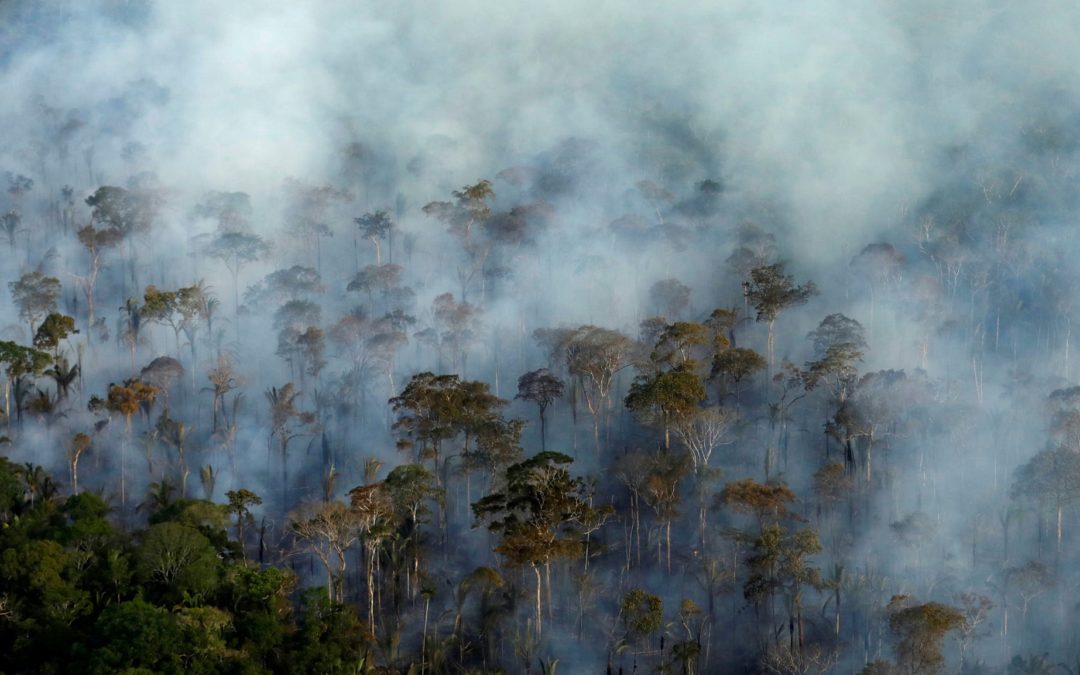SOURCE: The Guardian and Science Advances
DATE: October 30, 2019
SNIP: Greenhouse gas emissions caused by damage to tropical rainforests around the world are being underestimated by a factor of six, according to a new study.
Research led by the University of Queensland finds the climate impact of selective logging, outright clearing and fire in tropical rainforests between 2000 and 2013 was underestimated by 6.53bn tonnes of CO2.
The numbers are likely conservative, and also did not include emissions from other woodlands or the massive boreal forests in the high latitudes of the northern hemisphere.
Study co-author professor James Watson of the University of Queensland and the Wildlife Conservation Society said: “We have been treating forests as pretty one-dimensional, but we know degradation impacts carbon. The bottom line is that we knew the numbers would be big, but we were shocked at just how big.”
Watson said the numbers used for tropical rainforests were “conservative”, adding, “this is a carbon time bomb and policymakers have to get to grips with this”.
When countries declare greenhouse gas emissions from changes in forests, they do not account for the CO2 that forests would have continued to soak up for decades had they not been cleared or damaged. This is a measure known as “forgone removal”.
The study, published in the journal Science Advances, also accounted for those emissions up to the year 2050 – a timeframe relevant to the global Paris climate change agreement.
The study found 6.53bn tonnes of CO2 for foregone emissions and the impacts of other damage that wasn’t being counted.
Journal article abstract:
Intact tropical forests, free from substantial anthropogenic influence, store and sequester large amounts of atmospheric carbon but are currently neglected in international climate policy. We show that between 2000 and 2013, direct clearance of intact tropical forest areas accounted for 3.2% of gross carbon emissions from all deforestation across the pantropics. However, full carbon accounting requires the consideration of forgone carbon sequestration, selective logging, edge effects, and defaunation. When these factors were considered, the net carbon impact resulting from intact tropical forest loss between 2000 and 2013 increased by a factor of 6 (626%), from 0.34 (0.37 to 0.21) to 2.12 (2.85 to 1.00) petagrams of carbon (equivalent to approximately 2 years of global land use change emissions). The climate mitigation value of conserving the 549 million ha of tropical forest that remains intact is therefore significant but will soon dwindle if their rate of loss continues to accelerate.

